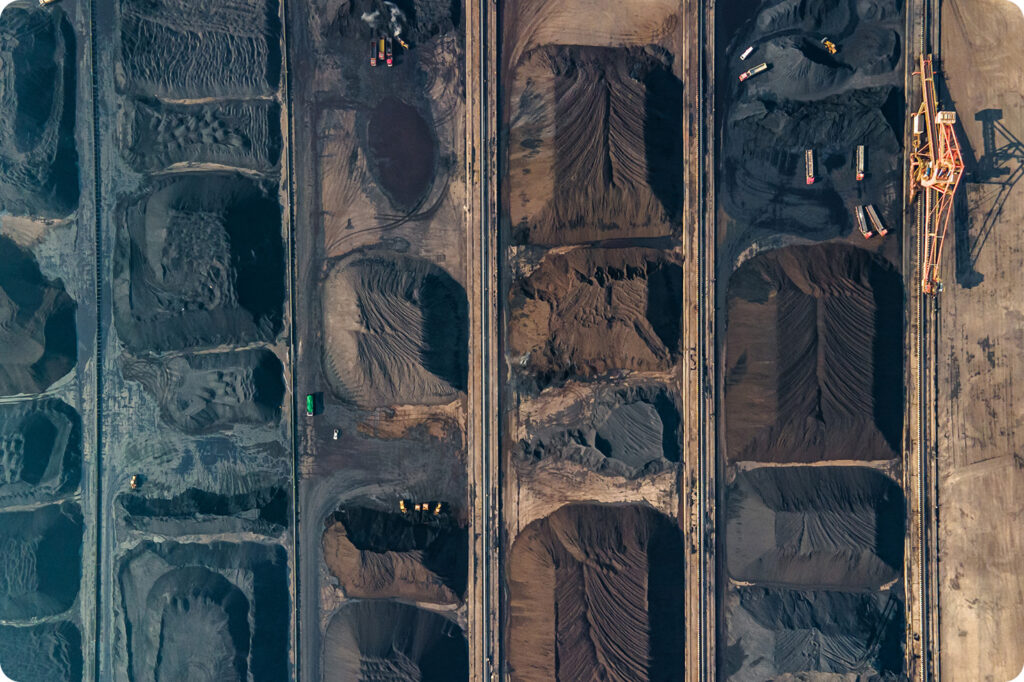The top five climate risk and disclosure stories this week.
Want access to deeper insights and curated climate news? Request a demo of our solution today.
Democrats press SEC on climate risk disclosure

More than 70 Democratic lawmakers wrote to US Securities and Exchange Commission (SEC) chair Gary Gensler, urging him to finalize the agency’s climate risk disclosure rule “as quickly as possible.”
The letter, dated August 7, argues that recent extreme weather events “have affirmed that climate change poses a significant financial risk” and “strengthened the case for finalizing a strong rule.” While acknowledging the fraught political environment, which has seen Republican lawmakers call the SEC rule unnecessary and ideologically driven, the letter says “this should not be a reason for continued delay.”
The SEC published its proposal for a climate risk disclosure rule in March 2022 and was expected to release a final version in April this year. An updated rulemaking agenda published by the SEC in June shows that the final rule could be released around October, though some observers suggest it may be later.
Republican lawmakers have targeted the SEC as part of a broad anti-ESG campaign, accusing it of regulatory overreach in proposing to compel climate-related disclosures from public companies. In a February 22 letter, three senior Republicans from the House and Senate said the proposed rule “exceeds the SEC’s mission, expertise, and authority,” and will hurt the US economy “if finalized in any form.”
The most recent letter from Democratic lawmakers took a very different tone, arguing that the SEC produced “a well-reasoned proposal that is grounded in financial materiality, aligns with the demands of investors and market participants, and is clearly within the SEC’s mission, authorities, long-standing norms, and responsibilities.”
US extreme thunderstorms drive record losses — report

Global insured losses from natural disasters over the first six months of 2023 amounted to US$50bn, data from reinsurer Swiss Re shows.
Almost 70% of these losses were due to extreme thunderstorms in the US, which together cost US$34bn, the highest ever for this particular peril over a six-month period. Ten storm events inflicted losses of US$1bn or more, with Texas being the most affected state.
Cyclone and flood impacts in New Zealand in the first quarter of 2023 also caused high losses, in addition to heavy rainfalls in northern Italy’s Emilia-Romagna region in mid-May.
Swiss Re acknowledged climate change’s contribution to worsening natural disasters like this year’s storms. “The effects of climate change can already be seen in certain perils like heatwaves, droughts, floods and extreme precipitation,” said Jérôme Jean Haegeli, the company’s chief economist. “Protective measures need to be taken for insurance products to remain economical for such properties at high risk. It is high time to invest in more climate adaption.”
Climate activists highlighted that many insurers, which are the financial institutions most immediately impacted by natural disasters, continue to finance fossil fuels despite their contribution to worsening physical climate risks. “2023 is already shaping up to be another year in which natural disasters will cost insurers dearly,” said Ariel Le Bourdonnec, a campaigner at climate pressure group Reclaim Finance. “Yet insurers continue to play [the] role of pyromaniac firefighter by fuelling climate change. Instead of raising the price of their cover in at-risk areas … insurers should stop supporting companies developing new fossil fuel projects that fuel the risk of natural disasters.”
UK FCA plans update to climate disclosure rule

The UK Financial Conduct Authority (FCA) says it plans to consult on climate and sustainability disclosure rules that align with the International Sustainability Standards Board (ISSB) in the first half of 2024.
In a market bulletin, the regulator said UK disclosure rules that align with the ISSB’s inaugural set of standards — IFRS S1 and S2 — would update and replace the current rules that adhere to the recommendations of the Task Force on Climate-related Financial Disclosures (TCFD). The FCA added it will take into account the UK government’s own ISSB endorsement process, which is expected to conclude by July next year.
Currently, FCA Listing Rule 9.86.R and 14.3.27 R require publicly listed companies to include TCFD-aligned climate disclosures in their annual reports on a comply-or-explain basis. The FCA wants updated rules to be made effective on or after January 1, 2025.
In the same bulletin, the FCA also said it plans to consult on transition plan disclosure guidance for regulated firms, drawing on the outputs of the UK Transition Plan Taskforce.
Carbon dioxide removal credit sales soar — report

Corporate purchases of carbon dioxide removals (CDR) surged to 3.4 million tonnes in the first half of this year — almost six times the amount bought in 2022, a report from data provider CDR.fyi shows.
CDR encompasses a range of technologies and techniques that extract carbon dioxide directly from the atmosphere. CDR companies issue credits to fund these removals, which are bought by companies that want to reduce their climate impact.
Microsoft is the largest buyer in 2023 so far, having purchased 2.8 million tonnes of CDR from the Danish company Orsted. NextGen, a tie-up between South Pole and Mitsubishi Corporation, was the second-largest buyer, paying for 193,125 tonnes of removals from three separate CDR entities.
JP Morgan has also played in the CDR market this year, having struck a long-term deal in May to purchase CDR credits intended to fund the removal and storage of 800,000 tonnes of carbon dioxide.
Although the sale of CDR credits has ramped up, the delivery of actual removals is sluggish. CDR.fyi says 33,636 tonnes of removals have been achieved in 2023 to date, slightly more than were delivered over the same period in 2022. In contrast, the US emitted around 13.6 million tonnes of carbon dioxide every day last year.
CDR.fyi says the 2023 sales data shows “an encouraging surge” in the CDR market as more companies participate and big players purchase larger volumes. In order for growth to continue, the data provider says “the core group of large buyers needs to expand” and that major corporations who have yet to make purchases need to get off the sidelines.
Australia’s largest bank to cut fossil fuel funding

The Commonwealth Bank of Australia (CBA) rolled out plans to curb its financing of fossil fuels in a Wednesday announcement.
CBA, the country’s largest bank, said in its updated climate policy that it will stop financing new and expanded oil and gas projects and require fossil fuel clients to release independently verified emissions reduction plans from 2025. Moreover, the bank will cease financing key fossil fuel infrastructure, such as pipelines to new oil fields. However, the bank said these policies are “subject to Australia having a secure energy platform.”
CBA claimed in its latest climate report to have cut financed emissions for in-scope portfolios by almost 13% to 22.3 million tonnes between 2021 and 2022. The bank says this figure covers around 44% of its total portfolio and 67% of its drawn lending exposure.
Climate activists welcomed the news. “This policy sends a stark warning to the fossil fuel industry: funding for your climate-wrecking expansion plans is drying up faster than a puddle in a heatwave,” Will van de Pol, the acting CEO of activist group Market Forces told The Canberra Times.

